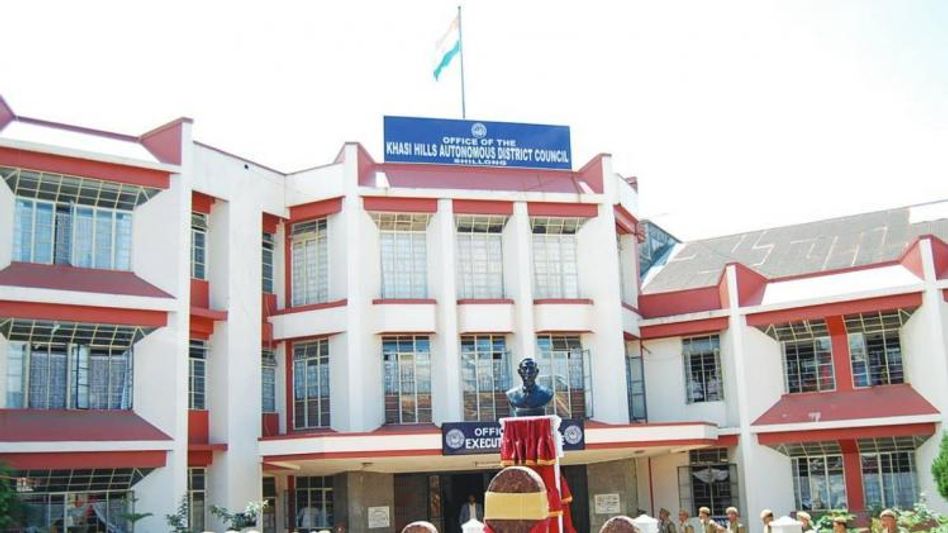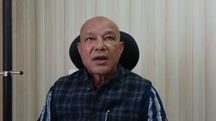Meghalaya: KHADC opposes decision to implement CrPC and CPC in tribal areas
The Meghalaya cabinet’s decision to clear the notification on the Code of Criminal Procedure (CrPC), 1973, and the Code of Civil Procedure (CPC), 1908, making them applicable in the state’s tribal areas, has met with opposition.
 KHADC opposes decision to implement CrPC and CPC in tribal areas
KHADC opposes decision to implement CrPC and CPC in tribal areas The Meghalaya cabinet’s decision to clear the notification on the Code of Criminal Procedure (CrPC), 1973, and the Code of Civil Procedure (CPC), 1908, making them applicable in the state’s tribal areas, has met with opposition.
The Khasi Hills Autonomous District Council (KHADC) has expressed strong opposition to the state government’s decision on the matter.
“We will not accept the notification as it is against the spirit of Para 5 (3) of the Sixth Schedule which says that the CrPC and CPC will not apply,” KHADC chief Titosstarwell Chyne told media.
Stating that the notification seeks to dilute the powers of the district council courts, Chyne said, “The notification clearly stated that the CrPC and CPC will apply to all courts of Meghalaya which also include the district council courts, subordinate courts, and village courts.”
He said that the government had gone ahead with approving the notification without taking into consideration the suggestions given by the district council to include the words “excluding the courts created under the Sixth Schedule to the Constitution of India and that these courts shall continue to derive powers under Para 4 and 5 of the Sixth Schedule to the Constitution of India.”
“We also suggested to the government the need to ensure that the exclusive jurisdiction of the district council courts to hear and trial cases between tribal in tribal areas shall not in any way be diluted,” he said.
“Therefore, we oppose and decided not to accept this part of the notification because it has not mentioned the word excluding the courts created under the Sixth Schedule,” Chyne added.
The CEM said the notification in its present form can also be interpreted that it will also apply to the district council courts despite it stating “that the district council courts shall continue to derive powers under Para 4 and 5 of the Sixth Schedule to the Constitution of India.”
“We under the need to confer the powers to the judicial magistrates in the district session courts but despite the assurance of the chief minister that this will not affect the district council courts, the notification however says otherwise since CrPC will be imposed in the whole state,” he stated.
Demanding the government to keep on hold the notification, the KHADC chief said, “The government should not notify the notification so long as the matter is yet to be resolved.”
He warned, “If the government decided to go ahead with its decision to dilute the powers of the district council courts then the government should close down all the district council courts.”
When asked, Chyne said he will convene a meeting with all the MDCs to take a collective decision on Monday next. “We will also meet with the leaders of the Jaintia Hills Autonomous District Council (JHADC) and Garo Hills Autonomous District Council (GHADC) to decide on the matter,” he said.
Meanwhile, the opposition Congress in the KHADC has also demanded the state government relook into its decision and consider exempting the district council courts from the provisions of the CrPC and CPC.
“We vehemently oppose the government’s decision as it seeks to snatch away the judicial powers of the district council courts,” Leader of Opposition PN Syiem told the media.
“We, therefore, demanded the government to exempt tribal areas under the Sixth Schedule from the provisions of the CrPC and CPC. The government should allow the district council courts to implement only the spirit of the CrPC and CPC,” he said.
He said the government should consider the fact that it is not easy for the rural poor to fight cases in the district session courts due to exorbitant fees. “We request the government not to dilute the age-old customary practices that have been there since British time and since Independence,” Syiem added.
Copyright©2025 Living Media India Limited. For reprint rights: Syndications Today









